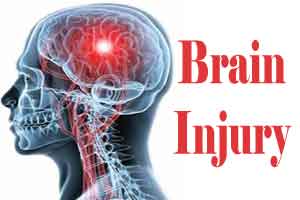- Home
- Editorial
- News
- Practice Guidelines
- Anesthesiology Guidelines
- Cancer Guidelines
- Cardiac Sciences Guidelines
- Critical Care Guidelines
- Dentistry Guidelines
- Dermatology Guidelines
- Diabetes and Endo Guidelines
- Diagnostics Guidelines
- ENT Guidelines
- Featured Practice Guidelines
- Gastroenterology Guidelines
- Geriatrics Guidelines
- Medicine Guidelines
- Nephrology Guidelines
- Neurosciences Guidelines
- Obs and Gynae Guidelines
- Ophthalmology Guidelines
- Orthopaedics Guidelines
- Paediatrics Guidelines
- Psychiatry Guidelines
- Pulmonology Guidelines
- Radiology Guidelines
- Surgery Guidelines
- Urology Guidelines
Stiffened arteries lead to structural damages to the brain

New York : Individuals who suffer from stiffening of the arteries and are in their 40s may experience subtle and structural damages in their brains, finds a new study.
The condition is also likely to advance towards cognitive decline and Alzheimer's disease later in life.
The findings showed that among young healthy adults, higher aortic "stiffness" was associated with reduced white matter volume and decreased integrity of the gray matter, and in ages much younger than previously described.
"This study shows for the first time that increasing arterial stiffness is detrimental to the brain, and that increasing stiffness and brain injury begin in early middle life, before we commonly think of prevalent diseases such as atherosclerosis, coronary artery disease or stroke having an impact," said lead author of the study Pauline Maillard, from University of California, Davis in the US.
The study, published online in the American Heart Association journal Stroke, also noted that elevated arterial stiffness is the earliest manifestation of systolic hypertension and added that the results may be a new avenue of treatment to sustain brain health.
"Measures of arterial stiffness may actually be a better measure of vascular health, and should be identified, treated and monitored throughout the lifespan," Maillard said.
The large study involved approximately 1,900 diverse participants in the Framingham Heart Study in the US, who underwent brain magnetic resonance imaging (MRI), as well as arterial tonometry.
The tests measured the force of arterial blood flow, the carotid femoral pulse wave velocity or CFPWV the reference standard for noninvasive measurement of aortic stiffness and its association with subtle injury to the brain's white and gray matter.
The research found that increased CFPWV was associated with greater injury to the brain.
However, with age high blood pressure causes the arteries to stiffen, further increasing blood pressure as well as increasing calcium and collagen deposits, which promotes atrophy, inflammation and further stiffening, decreasing blood flow to vital organs including the brain and promoting brain atrophy.
The study emphasises the need for primary and secondary prevention of vascular stiffness and remodelling as a way to protect brain health, early in life, the researchers concluded.
brain injurycarotid femoral pulse wave velocityCFPWVmagnetic resonance imagingMRIPauline Maillardstiffened arteries
Source : IANSNext Story
NO DATA FOUND

Disclaimer: This site is primarily intended for healthcare professionals. Any content/information on this website does not replace the advice of medical and/or health professionals and should not be construed as medical/diagnostic advice/endorsement or prescription. Use of this site is subject to our terms of use, privacy policy, advertisement policy. © 2020 Minerva Medical Treatment Pvt Ltd